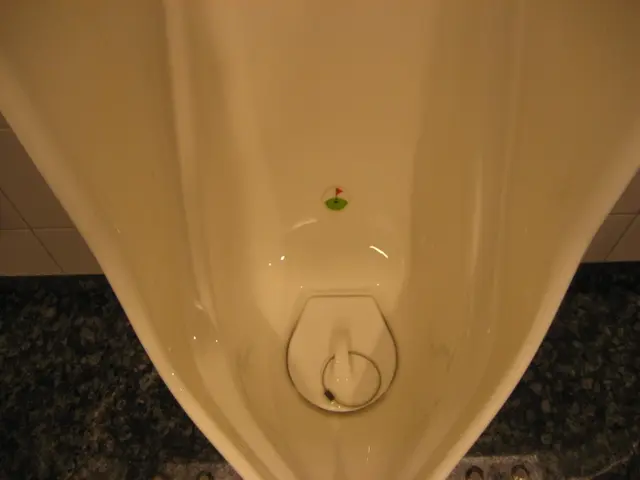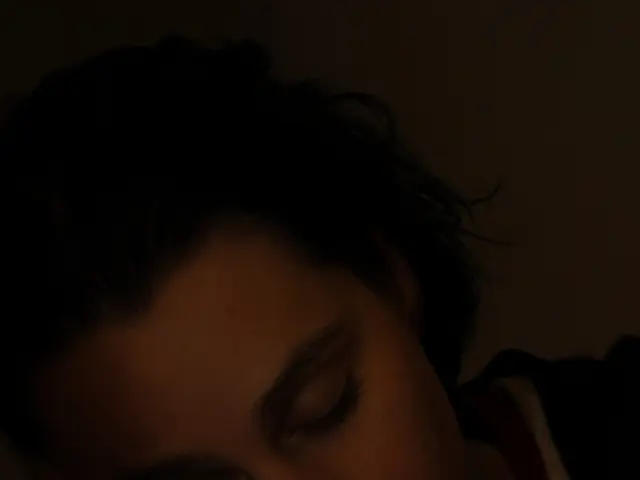Eliminating Hiccups: Four Strategies
Hiccups, colloquially known as singultus, can be a pesky nuisance for folks of all ages. Despite their irritating nature, they usually sort themselves out in no time. However, if you're in the mood to bid them adieu faster, here's a slew of tactics you might find useful.
Let's dive into the strategies that have proven effective for some, though success may vary from person to person.
Breathing and Posturing:
- Hold your breath for about 10-20 seconds before letting it out slowly. Repeat this process two more times.
- Try breathing into a paper bag (exercise caution not to cover your head with the bag) or bring your knees to your chest and hug them. Lean forward and gently press on your chest.
Eating and Drinking:
- Gargle with iced water or take a couple of drops of vinegar in your mouth. Swallow a teaspoon of granulated sugar or sip very cold water slowly.
- Bite a slice of lemon or stir a teaspoon of salt into yogurt, take a spoonful, and swallow it.
Pressure Points:
- Massaging the back of the neck, specifically the area where the base of the skull meets the neck, may stimulate the vagus nerve, helping to reduce diaphragm spasms.
- Press lightly on the diaphragm – located just below your ribcage – or place gentle pressure on each side of your nose while swallowing.
Medications:
If your hiccups persist or are severe, you may need to consult a healthcare professional. They might prescribe medications such as baclofen, chlorpromazine, metoclopramide, haloperidol, or gabapentin to help manage your symptoms. Use these medications under professional supervision only.
Now, let's tackle the causes of hiccups. The exact root cause can be elusive, but various factors can lead to those involuntary spasms in your diaphragm. Some potential triggers include stress, strong emotions, eating or drinking too quickly, carbonated beverages, spicy foods, and sudden temperature changes in your stomach.
To minimize the chances of a hiccup attack, evade the following pitfalls: eating or drinking too quickly, carbonated drinks, spicy foods, smoking, temperature changes in your food, and chewing gum. Each individual might have their unique trigger, and what helps one person might not help another.
Frequent hiccups in infants, although common, could indicate an underlying health condition. Consult a doctor if your little one's hiccups are persistent or causing distress. If hiccups become chronic (lasting more than 48 hours), they require professional evaluation to determine the cause and seek appropriate treatment.
In conclusion, hiccups are typically fleeting annoyances, but don't be afraid to try out some tactics if patience isn't your virtue. If they linger on for longer than usual or dramatically impact your daily activities, consult a healthcare professional for guidance.
- Predictive analytics in the field of health-and-wellness could potentially identify patterns that lead to hiccups, aiding in the prevention and management of this condition.
- In workplace-wellness programs, incorporating fitness-and-exercise routines, mindfulness practices, and mental-health resources might help reduce stress, a known trigger for hiccups.
- Therapies-and-treatments for skin-care, such as facials or massage, could provide temporary relief from stress, thereby perhaps alleviating hiccups.
- Nutrition plays a vital role in hiccup management, as avoiding spicy foods, carbonated beverages, and eating/drinking too quickly can minimize hiccup attacks.
- Weight-management strategies, like maintaining a balanced diet and regular exercise, can help reduce stress and improve overall health, thus potentially reducing the likelihood of hiccups.
- Sleep is essential for good health, and ensuring proper rest can help manage stress levels, potentially alleviating hiccups.
- Aligning your lifestyle choices with science-backed recommendations, such as practicing good nutrition, regular exercise, and adequate sleep, will promote long-term health and well-being, aiding in the prevention of various health conditions, including hiccups.








